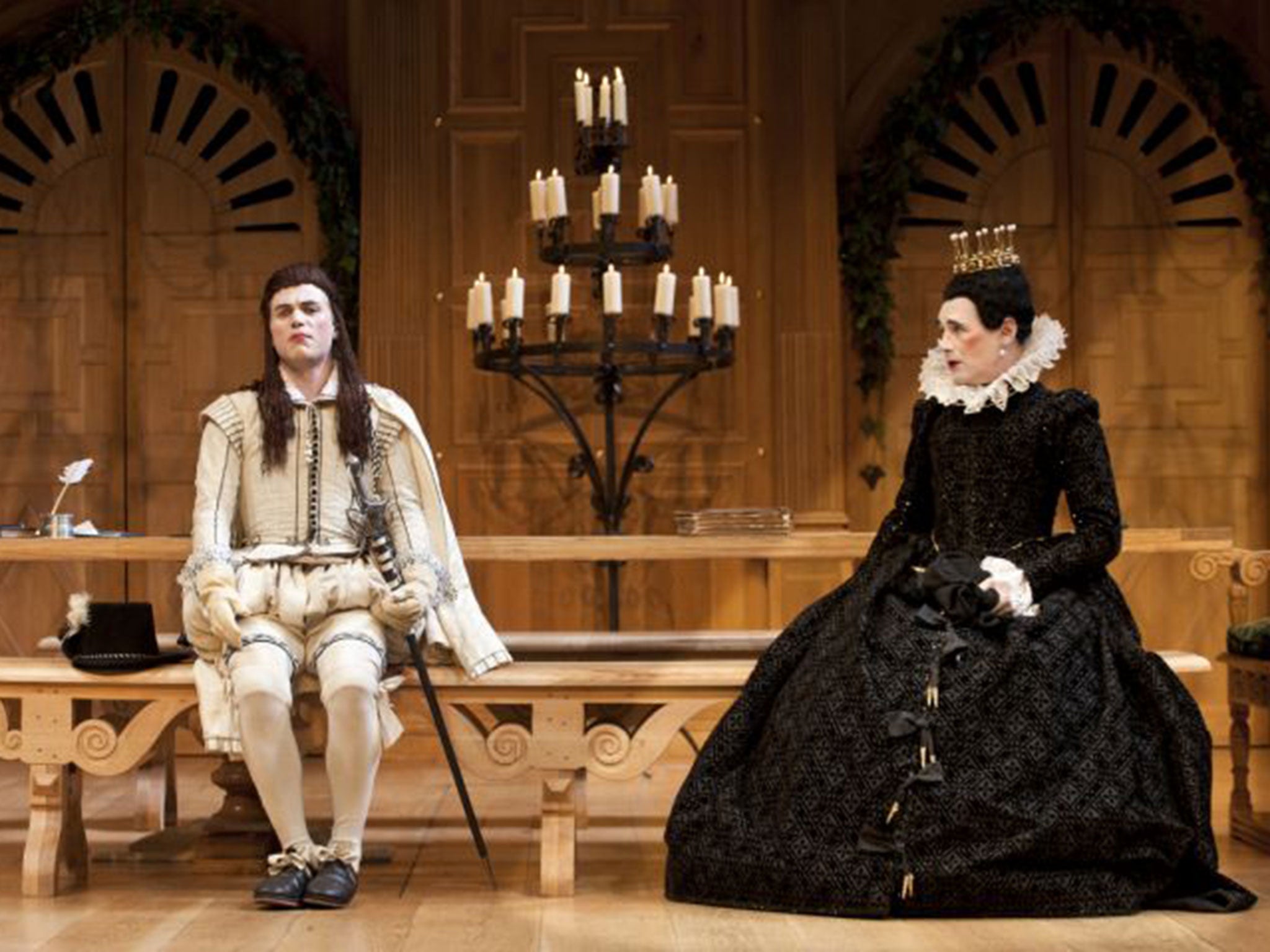Twelfth Night: Reflecting on a romance with a special place in my heart
Dizzyingly perfect, Twelfth Night is the ultimate comedy of love

Shakespeare may have written more important, more historically significant plays but in Twelfth Night his playwriting reached a dizzying, hysterical perfection. There is no greater romantic comedy in the theatre.
The play, written between 1600 and 1601, has everything: a shipwreck, twins, cross-dressing, mistaken identity, unrequited love (x3), imagined love, real love, partying, dressing-up, imprisonment, madness, a duel, marriage and – this makes it unique in Shakespeare – an excellent comic subplot and a fool who is actually quite funny. Feste the clown is twelfth night made incarnate, the antic heart of the play who gives it its topsy-turvy momentum and moments of reflective darkness. He is both the sleep-when-I’m-dead Christmas party spirit and the bleak January hangover that follows (“Youth’s a stuff will not endure”). Which goes some way to explaining Twelfth Night’s enduring popularity among British audiences.
It is a play about love and death, time and identity, debauchery and delusion, performed by a raucous ensemble (the Bard’s best) of masters and servants, none of whom are what they seem to be. Even the play’s oft-quoted first line – “If music be the food of love, play on” – is a sort of fake, an expression of Orsino’s bloated, self-indulgent, ersatz desire for Olivia. But on real love, like Viola’s secret, unrequited passion for Orsino, Shakespeare writes in this play some of his most enduringly beautiful lines:
She never told her love,
But let concealment, like a worm i’ the bud,
Feed on her damask cheek: she pined in thought,
And with a green and yellow melancholy
She sat like patience on a monument,
Smiling at grief. Was not this love indeed?
The “cakes and ale” (another of the play’s great coinages) subplot, in which Sir Toby Belch, a greater stage drunk than even Falstaff, gawky sidekick Sir Andrew Aguecheek and wily maid Maria gull Malvolio into thinking his boss Olivia is in love with him, flits from Saturnalian hysterics to dark insanity. Indeed, in keeping with the upside-down nature of the play, it almost surpasses the main, romantic plot. In Malvolio, the play provides the forefather to all pompous spoilsports, from Hancock to Fawlty and on. And his descent from pious prig to yellow-stockinged prat to piteous idiot makes him irresistible for venerable actors. John Gielgud, Laurence Olivier, Nigel Hawthorne, Alec Guinness, Simon Russell Beale, Derek Jacobi, Patrick Stewart, Richard Wilson and Stephen Fry are just some who have donned cross garters and a perma-smile to have the greatness of the part thrust upon them.
I have loved Twelfth Night since I studied it at A-Level, a line-by-line dissection so rigorous it ought to have stripped away any affection. Instead, I have sought out nights in Illyria ever since; it is one of the few plays I will always book to see, and is never less than a joy. I’ve seen it so many times, in Stratford-upon-Avon and Stoke-on-Trent, at the National and in the West End.
My first was at the Sheffield Crucible in 1998, halfway through sixth form, with Malcolm Sinclair as Malvolio and Una Stubbs as Maria, a wonderfully wet opening storm and dramatically tilting wooden stage. I can still remember a flamenco-dancing Orsino and the hilarity of Sir Toby and pals watching Malvolio read the letter from behind the hedge. Magical. It was directed by a young Michael Grandage, his first Shakespeare.
When, 10 years later, I interviewed him for The Independent about returning to the play, this time in the West End, with Jacobi as Malvolio, Ron Cook, Victoria Hamilton, Samantha Spiro and Indira Varma in his cast, I was able to tell him, with no exaggeration, that it was that Twelfth Night in Sheffield that first made me want to write about the arts for a living. A lovely example of “the whirligig of time”, as Feste calls it.
Subscribe to Independent Premium to bookmark this article
Want to bookmark your favourite articles and stories to read or reference later? Start your Independent Premium subscription today.

Join our commenting forum
Join thought-provoking conversations, follow other Independent readers and see their replies